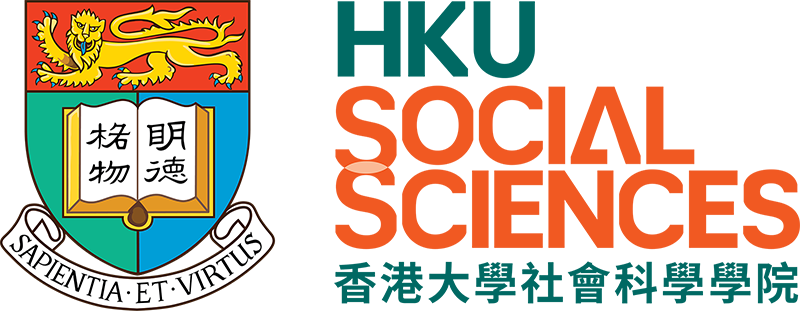Initiated and Funded by

Partner Institutions



Approximately 60,000 individuals pass away annually in Hong Kong, with over 80% of these deaths attributed to non-acute diseases. Terminal illnesses present a range of challenges for patients and their families, including physical discomfort, psychological distress, familial strain, and emotional difficulties. While the healthcare system primarily emphasises disease management, enhancing the quality of life for terminally ill patients throughout their remaining time is a critical consideration. It is also noteworthy that terminal patients typically spend more time within their communities than in hospital settings.
In response to these needs, the Hong Kong Jockey Club Charities Trust initiated and funded the “Jockey Club End-of-life Community Care” (JCECC) project in 2016. The initiative employs an interdisciplinary, evidence-based strategy to advance end-of-life care within community settings, enabling patients to access professional support in familiar environments. This approach aligns with the objective of offering comfort to both patients and their families.
Following years of dedicated work, the project has successfully implemented and established an effective medical-social collaborative community care model for elderly patients. Community education initiatives and heightened governmental attention to end-of-life care have substantially raised public awareness and acceptance of these services.
Recognizing the unique challenges faced by individuals with physical or mental/intellectual disabilities when dealing with terminal illnesses, the Hong Kong Jockey Club Charities Trust initiated and funded a new five-year project in 2024. This project aims to adapt the current community end-of-life care model designed for the elderly to meet the specific needs and service requirements of this group, ensuring that they and their caregivers receive high-quality community palliative care.
“The joy of life and the serenity of passing — Together, we build a future with choices.” The JCECC Project upholds this belief by expanding community care through a “medical-social collaboration” model, helping individuals shape meaningful lives in a supportive environment.


Patients with terminal illness and their caregivers encounter a diverse array of challenges throughout various stages of their illness trajectory. The nature and intensity of these challenges differ significantly among individuals, and it is common for multiple issues to arise concurrently. Generally, these challenges encompass practical aspects such as symptom control, finance concerns, daily life, and caregiving arrangements. Additionally, dealing with emotions, family relationships, and accessing social support are important aspects that might require attention.
The patients and caregivers have distinct challenges and needs . Assessing their requirements and delivering personalised services enables the provision of appropriate support.

According to the World Health Organization, palliative care aims to improve the quality of life of patients and that of their families who are facing challenges related to life-threatening illness 1. Palliative care can prevent and relieve pain, along with addressing the physical, psychological, social, and spiritual challenges that are caused by illness through early identification, comprehensive assessment, and treatment. It can be initiated early in the progression of the illness and can be provided together with other life-prolonging treatments.

There are different definitions of end-of-life care around the world. In general, end-of-life care refers to the care and support to the patients in their final phases, which can be in the final months or weeks, but for some conditions, this could be months or years 2. This includes people with:

Advance care planning is often defined as a process of communication among a patient, his/her healthcare providers, family members or caregivers regarding the end-of-life care when he/she can no longer make a decision 3,4. The person can express values, wishes and preferences for future medical or personal care, or make an advance directive to refuse life-sustaining treatments (LST) 3,4. Advance Care Planning aims to ensure the end-of-life care that is congruent with the wishes of the person and their family 5. In Hong Kong, Advance Care Planning is entirely voluntary.

Advance Medical Directive is a legally blinded document. It allows an adult patient to make instructions in advance for situations where they are mentally incapable of deciding on a life-sustaining treatment (LST), following in-depth discussions with family members and healthcare professionals 6. In the event of the patient’s health deteriorating where patient loses the mental capacity to decide on a LST, healthcare professionals will adhere to the patient’s AMD regarding the withholding or withdrawal of pertinent LSTs, provided that the specified preconditions in the AMD are met. The preconditions include being terminally ill, in a persistent vegetative state or state of irreversible coma, or being in other end-stage, irreversible, life-limiting condition.
1982
Our Lady of Maryknoll Hospital pioneered palliative care service in Hong Kong1
1986
The Society for Promotion of Hospice Care (SPHC) was found2
1987
Nam Long Hospital, Haven of Hope Hospital, Ruttonjee Hospital, and United Christian Hospital started the provision of Palliative Care Services
1988
SPHC started the first Hospice Home Care Team1
1997
The Jessie and Thomas Tam Centre started to provide bereavement counselling service
1998
Caritas Medical Centre, Wong Tai Sin Hospital, Buddhist Hospital, Shatin Hospital, and Grantham Hospital commenced the Palliative Care Services3
2007
6 Oncology centres joined the provision of Palliative Care Service
2010
Palliative Care Service extended to cover non-cancer patients
2016
Jockey Club End-of-Life Community Care Project (JCECC) launched6
2017
Hospital Authority formulated Strategic Service Framework for Palliative Care8
2023
Jockey Club Bereavement Care and Support Alliance (JCBeCARE) project was launched to enhance bereavement support9
2024
Jockey Club End-of-Life Community Care : Unison project (JCECC Unison) was launched to support End-of-Life care for persons with disabilities
The information provided on this web site is presented solely for general public knowledge only and is deemed as accurate as possible at the time of publication. All information on this site is provided in good faith, however, we make no representation or warranty of any kind, express or implied, regarding the accuracy, adequacy, validity, reliability, availability, or completeness of any information on the site. The Faculty of Social Sciences and the Department of Social Work and Social Administration of the University of Hong Kong do not assume any responsibility for any risks associated with the information on this website or websites to which it is linked.